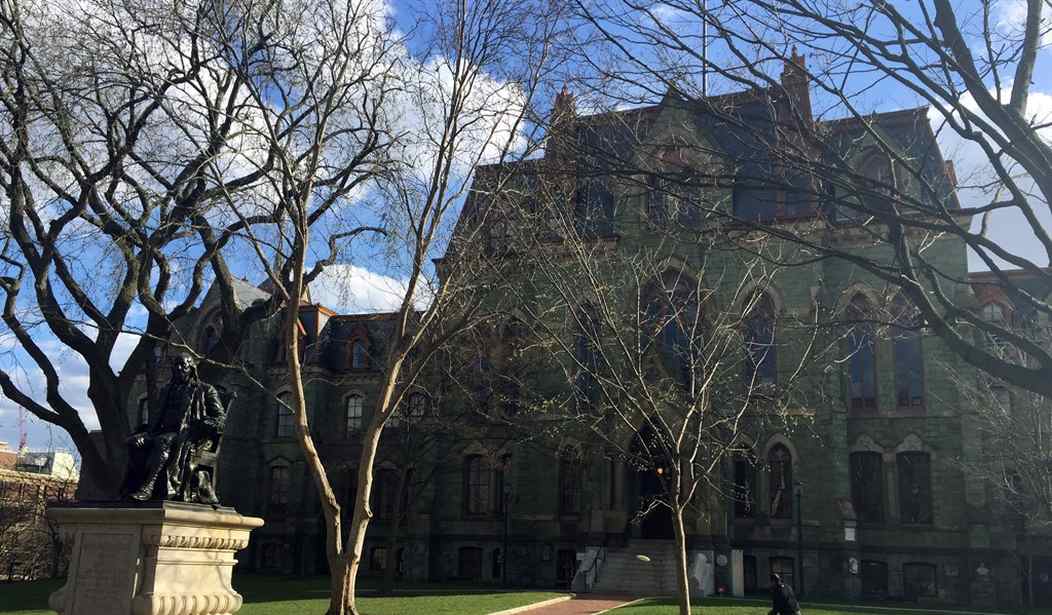I just attended a two-day academic conference at the University of Pennsylvania, in part out of interest in the topic ("American & Muslim Worlds ca. 1500-1900"), in part to get a first-hand sense of discourse in the humanities at the contemporary university. As the founder of Campus Watch, I wondered if it is as bad as our reports suggest, or whether we focus on outliers.
My first impression was one of intellectual coziness. A broad consensus on a common base of liberal assumptions crowds out dissenting opinions. A series of hierarchies exists:
- Modern bests old
- Non-American bests American
- Female bests male
- Dark skin bests white skin
- Muslim bests non-Muslim
The word "Islamophobia" is used as though a normal English-language word rather than a propagandistic tool to shut down criticism. A prominent nineteenth century missionary, Henry Jessup, was anachronistically called a "preeminent Muslim-basher."
A Canadian professor living in Costa Rica resented that the people of the United States "commandeered" the word American to apply to themselves only. One speaker praised the conference for having "problematized the centrality of the United States." A moderator worried so much about "America-centrism" that he asked, "Should we not be doing this topic at all? Is there an inherent arrogance" in Americans studying Muslims? A frisson rippled through the audience at mention of "Trump"; in contrast, invoking Edward Said won the predictable approval.
My second impression concerns jargon. No person outside academe uses words like "problematize," "racialize," and "relativize," much less would he "historicize the notion of imagination." (What's with all this turning nouns into verbs with –ize?) Use of the word "and" in the conference title spawned considerable debate (does it imply America and the Muslim world are completely different or does it allow for overlap?) to the point that this came to be known as "the and problem."
Recommended
The third and strongest impression concerns triviality, the historians' tendency to avoid big, meaningful analyses in favor of trifling micro-topics. They answer questions no one asks. This propensity blazed brightly at the UPenn conference. Papers titled "Byron's Houris in America: Visual Depictions of Muslim Heroines in the Gallery of Byron Beauties" or "'Strangers in the Stranger Lands': The 'Rebs and Yanks' in the Khedival Citadel" turned the worthy topic of early U.S.-Muslim connections into a series of obscurities. The prize for oddity, however, goes to "Bombo's America: An Energy-Humanities View of the Early American Oriental Tale."
In contrast, compelling and useful issues barely surfaced: The role of literate Muslims among African slaves. The impact of the Moro rebellion in the Philippines on U.S. opinion. The legacy of Protestant missionaries to the Middle East. The percentage of Muslims in early Middle Eastern immigration. The way peddlers became dry-goods store owners and then, disproportionately, liquor store owners. The legacy of the Shriners, officially known as the Ancient Arabic Order of the Nobles of the Mystic Shrine, with its mock Mecca Temples and other Islamic motifs.
The conference was advertised as "free and open to the public but registration is required," so I signed up, thereby signaling the organizers and speakers of my presence. I can't be sure, but I suspect that Kambiz GhaneaBassiri's gratuitous mention of my 1990 article title, "The Muslims are Coming! The Muslims are Coming!" was intended for my benefit. Likewise, the repeated order that the conference not be recorded on audio or video seemed directed squarely at me. It's an odd demand from an academic institution, which by its nature wants to reach a wider public, but understandable given how often Campus Watch has exposed Middle East studies excesses by recording events. I doubt that prohibition is legally enforceable.
I grew up around a university (my father Richard is a professor emeritus) and went on to earn a Ph.D. in medieval history, so I initially expected the campus ever to be central in my life. Then, because it radicalized and I did not, my connection to the academy withered. Now, on occasional return visits to it, I invariably feel alienated by the left-wingery, the jargon, and the arrogant irrelevance. While glad I escaped its clutches, I worry about the future of American (that word again) higher education. So, yes, Campus Watch has it right.
The Fox News Channel revealed that half of Americans are ready for an alternative media. When will educators figure out the same logic applies to universities?
























Join the conversation as a VIP Member